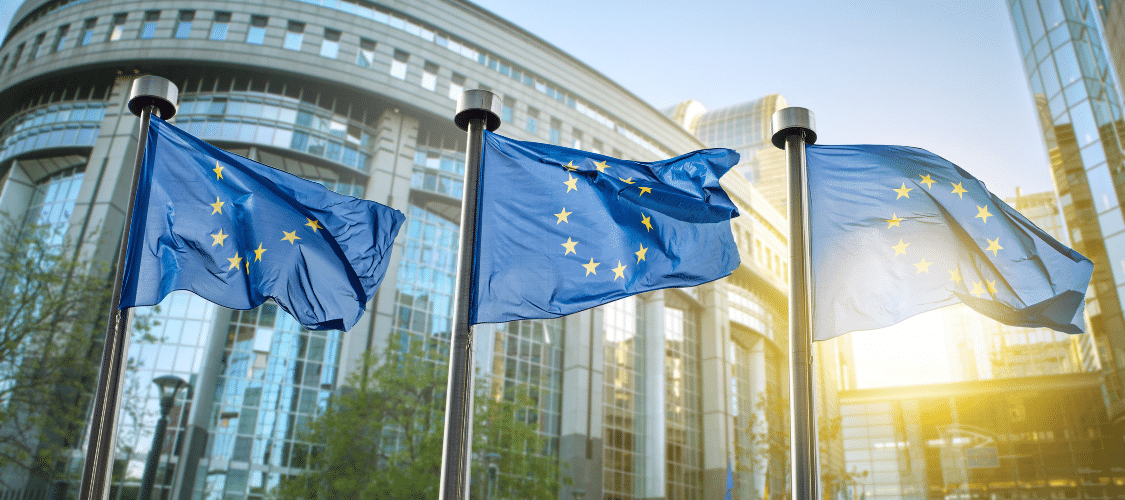Caisse des Dépôts et Consignations (CDC), the largest French public asset owner, which manages a large proportion of French people’s savings, published its 2024 responsible investment report at the end of June [1]. While its current commitments still allow CDC to invest in oil and gas expansion, the institution did not take the opportunity to announce a reduction in its support in this area. CDC presents a responsible investor strategy focusing primarily on shareholder dialogue, while its approach lacks credibility. Reclaim Finance is calling on CDC to end its new investments and votes in favor of companies developing new oil and gas projects, improve its transparency, and strengthen its influence with external asset managers.
CDC was managing 323 billion euros in financial assets at the end of 2024, 73% of which came from French people’s savings in accounts such as Livret A and Livret de Développement Durable et Solidaire [2]. A recent report by Reclaim Finance highlighted CDC’s continued support for oil and gas development and its lack of transparency.
The uncertainty surrounding new oil and gas investments
In its report published at the end of June, CDC did not announce any new measures to formally end its investments in oil and gas expansion. Our recent report pointed out the flaws in its current commitments, which still allow CDC to make new investments in oil and gas developers, such as TotalEnergies, using French savings. In particular, CDC can still purchase new bonds from these companies, even though the money provided could contribute to the implementation of projects incompatible with a 1.5°C trajectory according to climate science [3].
Due to CDC’s lack of transparency regarding its investments, however, it is not possible to determine the extent to which the institution continues to make new investments in oil and gas expansion, and which companies are concerned.
CDC has adopted other measures, notably by committing not to increase its total exposure to companies developing new oil exploration or production projects, but not gas projects despite the urgent need to prevent the expansion of fossil gas [4]. However, its current commitments are not sufficient to align with the scientific recommendations for a 1.5°C trajectory, which is CDC’s stated goal.
Several other investors of comparable size to CDC have already adopted robust measures to reduce their support for oil and gas expansion, thus leading the way [5].
The shareholder dialogue lacks credibility and is ineffective in halting fossil fuel expansion
In its new report, CDC confirms that shareholder dialogue is one of its key climate action levers. However, its approach to companies pursuing oil and gas expansion lacks credibility, effectiveness, and transparency:
- CDC does not define any voting sanctions for these companies. While Say-on-Climate resolutions are rare and consultative in the sector, CDC only provides information on these votes, without specifying the companies concerned [6]. No measures are specified regarding management-proposed resolutions, such as director re-elections or remuneration, which are presented at each annual general meeting and have strategic significance.
- CDC does not mention any strategy for gradually intensifying its actions – a so-called “escalation strategy” – with these companies. It only mentions the possibility of excluding certain companies in the absence of results from the dialogue, or for companies that refuse to engage in dialogue [7]. In a report published in 2023, the French Audit Court (Cour des Comptes) already highlighted this weak escalation strategy [8].
- CDC has not publicly responded to the recent climate backtracking by oil and gas giants, which demonstrate the ineffectiveness of shareholder dialogue with companies in the sector.
- While CDC has made the 1.5°C target a guideline, 95% of companies active in oil and gas production and exploration – including TotalEnergies – are continuing to expand [9], thus failing to align with a 1.5°C trajectory.
- CDC does not publish the details of its votes at the annual general meetings of the companies of which it is a shareholder, although the French Audit Court recommended that the institution increased its transparency in that area.
It is urgent that CDC change its approach, starting by systematically voting against the re-election of directors and the remuneration of top executives and directors of oil and gas developers, as several investors have already begun to do [10].
The climate threat of external asset managers
In a context of repeated attacks targeting ESG and climate retreats by major asset managers like BlackRock [11], CDC has a key responsibility as France’s largest public institutional investor to encourage managers to stay the course of the transition. Today, the majority of asset managers engage in climate-damaging practices, massively supporting fossil fuel expansion.
CDC delegates 3% of its portfolio, or 10 billion euros, to external asset managers, in the form of listed and unlisted funds. As long as the institution does not adopt robust climate criteria when selecting a new manager, CDC risks working with some of these asset managers [12].
Furthermore, at a time when several European institutional investors are pulling money from managers with inadequate climate practices or publicly condemning their backsliding, CDC is making little use of its public influence with asset managers. In its 2024 report, the institution only mentions the existence of an annual questionnaire and bilateral private discussions, but does not mention other upcoming actions or provide information on the effectiveness of this dialogue.
While CDC has announced the upcoming publication of its transition plan, it is essential that the institution include three priority commitments to reduce its support for oil and gas expansion: ceasing new investments in companies pursuing expansion, systematically voting against the management of these companies at each annual general meeting, and strengthening its dialogue and selection criteria with external asset managers.



